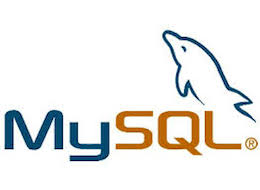
In this tutorial, we will show you how to install AutoMySQLBackup on your Ubuntu server. For those of you who didn’t know, AutoMySQLBackup is a robust utility designed to simplify the backup process for MySQL databases. It automates the task of taking regular backups, managing the backup files, and providing notifications of the backup status. With AutoMySQLBackup, you can schedule backups to occur daily, weekly, or monthly, and it takes care of the rest—compressing, encrypting, and rotating the backups according to your preferences. This tool is invaluable for database administrators and anyone looking to safeguard their data without manual intervention.
This article assumes you have at least basic knowledge of Linux, know how to use the shell, and most importantly, you host your site on your own VPS. The installation is quite simple. I will show you the step-by-step installation AutoMySQLBackup in the Ubuntu server.
Prerequisites
- A server running one of the following operating systems: Ubuntu Linux.
- It’s recommended that you use a fresh OS install to prevent any potential issues.
- A
non-root sudo useror access to theroot user. We recommend acting as anon-root sudo user, however, as you can harm your system if you’re not careful when acting as the root.
Install AutoMySQLBackup on Ubuntu
Step 1. Keeping your system up to date is crucial for security and compatibility. Begin by updating your package lists and upgrading the existing packages to their latest versions:
sudo apt update sudo apt upgrade
AutoMySQLBackup requires certain dependencies to function correctly. Install ‘wget’ if it’s not already present on your system:
sudo apt install wget
Step 2. Installing AutoMySQLBackup on Ubuntu.
With the dependencies in place, the next step is to download the latest version of AutoMySQLBackup. Use ‘wget’ to fetch the package from the official source:
wget http://sourceforge.net/projects/automysqlbackup/files/latest/download -O automysqlbackup.tar.gz
Once the download is complete, extract the contents of the tarball and navigate to the installation directory:
tar xvfz automysqlbackup.tar.gz cd automysqlbackup
Run the installation script provided with the package:
sudo ./install.sh
This script will place the necessary files in the appropriate directories on your system.
Step 3. Configure AutoMySQLBackup.
After installation, configuring AutoMySQLBackup to suit your specific needs is the next critical step. Open the configuration file in your preferred text editor:
sudo nano /etc/automysqlbackup/automysqlbackup.conf
Here, you can set up various options such as the email address to receive notifications, the frequency of backups, and the location where backups should be stored. Make sure to adjust the permissions of the backup directory to prevent unauthorized access.
Uncomment and set the following configuration directives:
CONFIG_mysql_dump_username='root' CONFIG_mysql_dump_password='YourPassword' CONFIG_mysql_dump_host='localhost' CONFIG_backup_dir='/var/backup/db' CONFIG_do_monthly="01" CONFIG_do_weekly="5" CONFIG_rotation_daily=6 CONFIG_rotation_weekly=35 CONFIG_rotation_monthly=150 CONFIG_mysql_dump_port=3306 CONFIG_mysql_dump_compression='gzip'
Create a directory for the MySQL backups. This is the directory we set as ‘backup_dir’ in the configuration file:
mkdir /var/backup
It’s always a good practice to test your setup to ensure everything is working as expected. Trigger a manual backup and check the output and backup files:
automysqlbackup
Step 4. Automating Backups Using Cron
Cron is a time-based job scheduler in Unix-like operating systems, and it’s perfect for automating your backups. Edit the crontab to add a new job that runs AutoMySQLBackup at your desired frequency:
sudo crontab -e
Add the following line to schedule daily backups at 2 am:
0 2 * * * /usr/local/bin/automysqlbackup
Save and close the crontab, and your backups will now run automatically.
Congratulations! You have successfully installed AutoMySQLBackup. Thanks for using this tutorial for installing AutoMySQLBackup on Ubuntu system. For additional help or useful information, we recommend you check the official AutoMySQLBackup website.